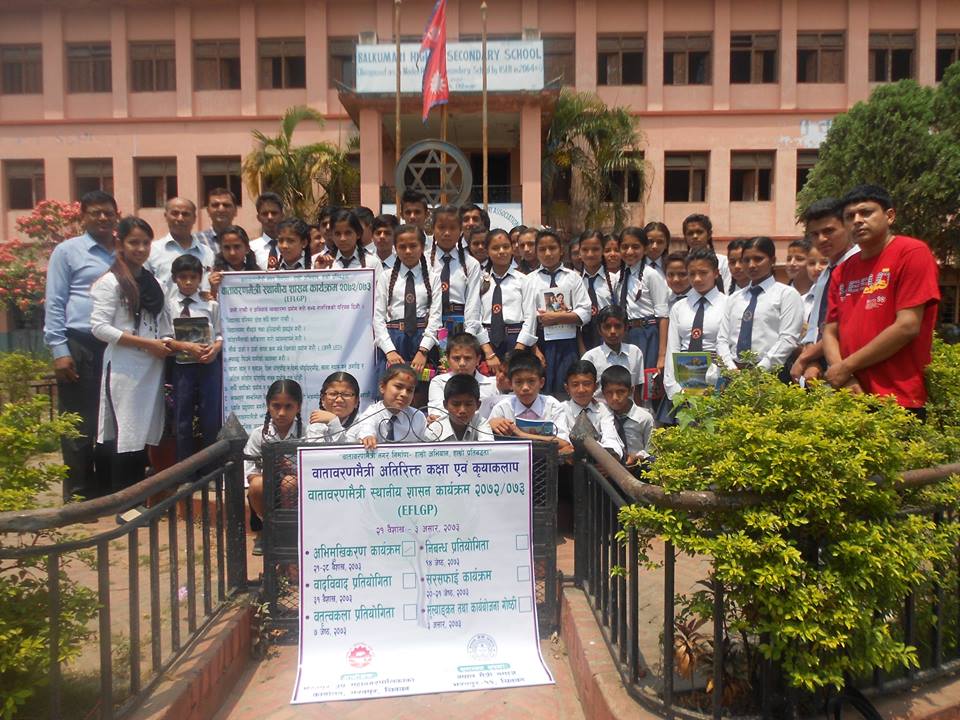Nepal Friendship Society – engaged for equality and community empowerment
By Milena
Rampoldi and Denise Nanni, ProMosaik. In the following our interview with
Birendra of the Nepal Friendship Society
engaged against poverty, child marriage, and human trafficking in Nepal.

Tell us about the history of the Nepal
Friendship Society?
Friendship Society?
The Nepal Friendship Society is an Non
Government and non-profit organization (NGO), founded in 2012, with a
group of Youth from Chitwan, Nepal. Our main objectives are the empowerment of children,
youth and women to improve the conditions of our local communities and of our country
in general.
Government and non-profit organization (NGO), founded in 2012, with a
group of Youth from Chitwan, Nepal. Our main objectives are the empowerment of children,
youth and women to improve the conditions of our local communities and of our country
in general.
What are the main social issues
within Nepalese society?
within Nepalese society?
The main problems in Nepal are political,
instability, and environmental issues. We have still 41% of girls married
before age 18 although child marriage is illegal. Poverty, gender equality and
social inclusion are also current issues within Nepalese communities.
instability, and environmental issues. We have still 41% of girls married
before age 18 although child marriage is illegal. Poverty, gender equality and
social inclusion are also current issues within Nepalese communities.

In what ways do you promote
communities empowerment?
communities empowerment?
Our working areas are environment, support for
quality education, human rights and peace. We are engaged in the empowerment of
children, youth and women using our resources to organize workshops, leadership
programs and trainings as well as orientation sessions.
quality education, human rights and peace. We are engaged in the empowerment of
children, youth and women using our resources to organize workshops, leadership
programs and trainings as well as orientation sessions.
What are the main sources of
inequality and how do you address them?
inequality and how do you address them?
There are many sources of inequality such as
poverty, quality education, gender based violence, etc. In Nepal many women remain
trapped in poverty.
poverty, quality education, gender based violence, etc. In Nepal many women remain
trapped in poverty.
We provide educational materials to schools and
students. We organize environmental and human trafficking orientation in
schools and also in communities. NFS also offers its support, by sending
volunteer teachers to rural communities to help them to improve in education.
students. We organize environmental and human trafficking orientation in
schools and also in communities. NFS also offers its support, by sending
volunteer teachers to rural communities to help them to improve in education.

What is the current situation
related to human trafficking in Nepal and how do you address this issue?
related to human trafficking in Nepal and how do you address this issue?
According to the UNICEF report of 2016, there
are 7.000 women and girls trafficked from Nepal to India every year. Sex
trafficking is growing problem in Nepal. We need to work together to address
this issue. NFS uses social media like Facebook, Twitter, and the blog of the
organisation to make people aware of the situation of trafficked Nepalese girls
and women. We explain the traffickers‘ tactics and strategies, and organize
talks with schoold children, youth leaders and people working with children or
teens to make them aware of the problem. Women have to be alert when travelling
and raise their voice against trafficking. Since, only “together we can
change our local communities, our country and the world.”
are 7.000 women and girls trafficked from Nepal to India every year. Sex
trafficking is growing problem in Nepal. We need to work together to address
this issue. NFS uses social media like Facebook, Twitter, and the blog of the
organisation to make people aware of the situation of trafficked Nepalese girls
and women. We explain the traffickers‘ tactics and strategies, and organize
talks with schoold children, youth leaders and people working with children or
teens to make them aware of the problem. Women have to be alert when travelling
and raise their voice against trafficking. Since, only “together we can
change our local communities, our country and the world.”



